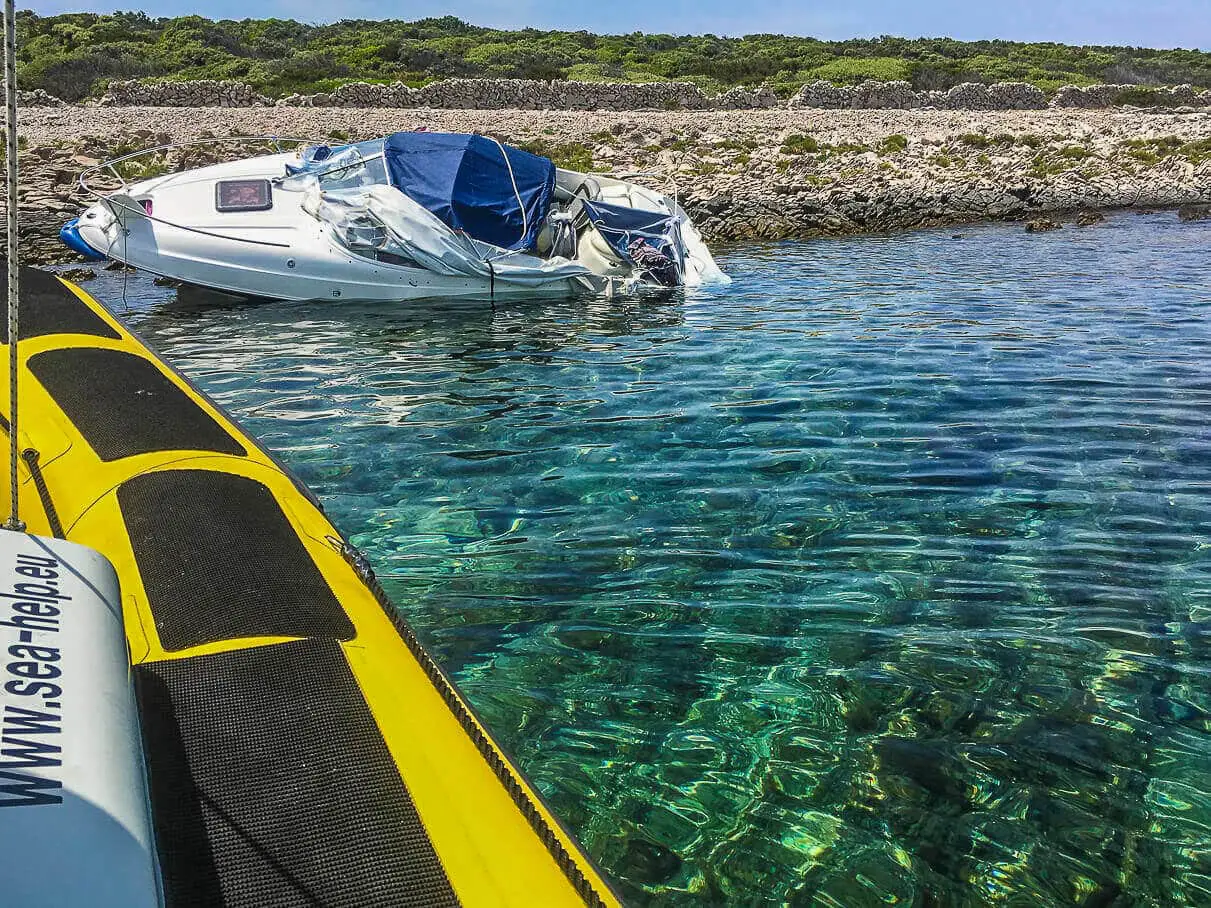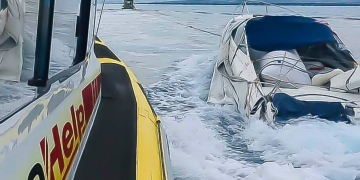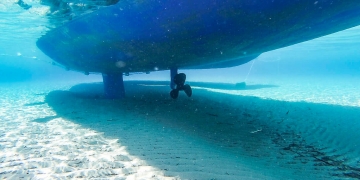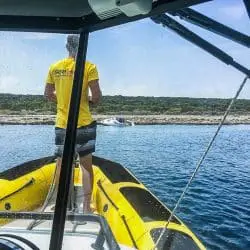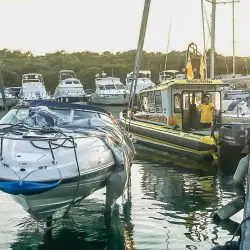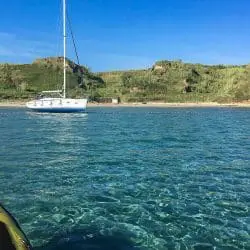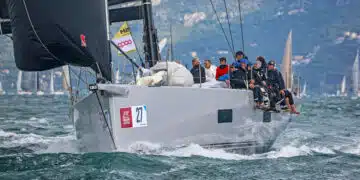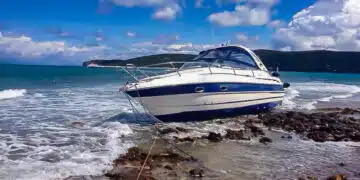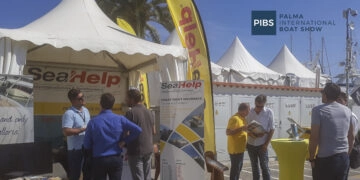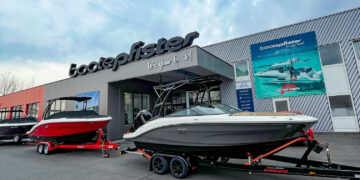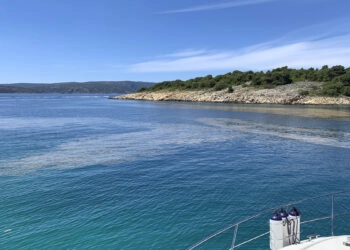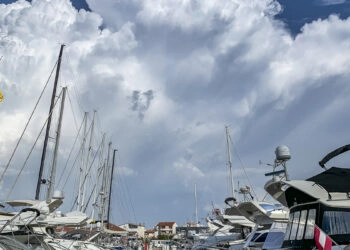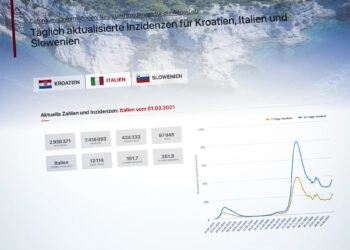As if from nowhere, the stakes had to be raised. The HelpLine was in full swing, and SAR also counted more than 100 calls in just under two hours. Anyone who had a SeaHelp membership was particularly well off during this critical time, because SeaHelp members enjoy preferential treatment at the HelpLine when they are on the same mission: They always get help first. Especially when the boat is stranded or threatening to run aground on the rocks, every minute can be critical.
The balance of the thunderstorm front on the previously so contemplative Sunday evening: A total of 24 operations in a short period of time kept the forces between Istria and Dubrovnik on their toes. Eleven violent groundings, during which the boats had to be salvaged, two free towing operations with light grounding, five towing operations to the next port, two start-up assistance and four general assistance operations were recorded late at night in the operation protocol of SeaHelp headquarters in Punat. The term “general assistance” should not be underestimated in terms of the effort involved. In a more than irresponsible situation, an adult with six small children had ventured out from a campsite with an (inflatable) rubber boat into the Adriatic Sea despite a thunderstorm warning and was considered missing. SAR, captainry and SeaHelp participated in the search. Luckily it ended without any trouble, the maritime “Assumption Command” had made it ashore under their own power.
SeaHelp had already issued a storm warning early on via the app, warning of thunderstorms and squalls of 35 to 40 kt. “Obviously the warnings were ignored in view of the beautiful weather,” a SeaHelp employee suspected.
Already at 7 pm the storm front reached Istria. A team from the Mali Losinj base, which went out for support, had a more than arduous way back: “Waves as high as houses!” Stanko Kovacevic reported to the control center, more than three knots top speed was hardly possible. But SeaHelp’s emergency crews and powerful rescue boats can handle situations like this.
One more thing was noticeable: SeaHelp had only recently explicitly advised on the Internet that anchor buoys or anchors should be checked to make sure they were firmly anchored. Obviously not emphatically enough, because the majority of the boats damaged during this storm weekend were drifted ashore because the lines of the anchor buoys broke or did not hold anchors.
In addition, this storm Sunday showed once again how important it is to have a SeaHelp membership. 22 assignments were driven for SeaHelp members, only two assignments were for non-members. At the end of the day, this is not only a question of costs, but also a question of costs: According to the General Terms and Conditions, SeaHelp members understandably enjoy priority treatment over non-members for missions of equal rank and pay nothing or significantly less for certain services.


